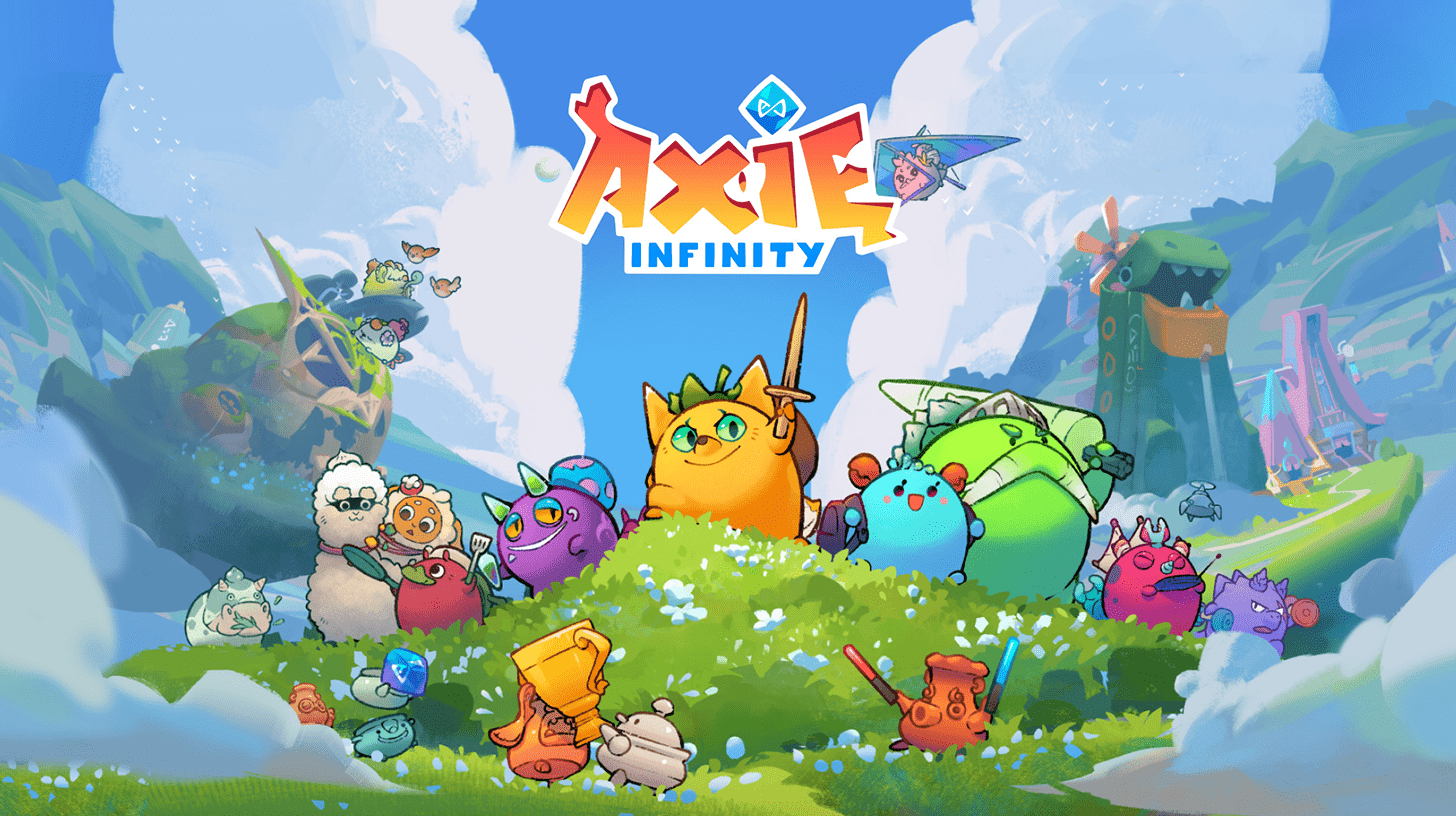The Role of Governance Tokens in Crypto Gaming Communities

Governance tokens have emerged as a crucial element in the broader blockchain ecosystem, providing token holders with the ability to influence and shape the future of decentralized projects. These tokens enable participants to vote on key decisions, from protocol upgrades to the allocation of resources, thus ensuring that the community's voice is heard in the development process.
In the context of crypto gaming communities, governance tokens play an increasingly important role. They offer players not just a stake in the game’s economy, but also a say in how the game evolves over time. This democratization of decision-making fosters a deeper sense of involvement and ownership among players, making the gaming experience more interactive and community-driven.

Understanding Governance Tokens
Governance tokens are a type of cryptocurrency that grant holders the ability to influence decisions within a blockchain project or decentralized application (dApp). Unlike traditional in-game tokens, which are primarily used for transactions or purchasing items, governance tokens provide voting rights, allowing holders to participate in the decision-making process that shapes the future of the game or platform.
Definition of Governance Tokens and How They Function
Governance tokens function as a tool for decentralized governance within a crypto ecosystem. These tokens are typically distributed to users based on their involvement or investment in the platform. Holders of governance tokens can propose and vote on various changes, such as updates to the game mechanics, economic models, or even the development roadmap. The more tokens a player holds, the greater their voting power, which can influence the direction of the project.
Key Differences Between Governance Tokens and Other In-Game Tokens
The primary difference between governance tokens and other in-game tokens lies in their purpose and utility. While traditional in-game tokens are used to buy items, unlock features, or enhance gameplay, governance tokens are specifically designed to enable community participation in the governance of the game. This distinction makes governance tokens crucial for players who want to have a say in the future development of the game, rather than just being passive participants.
The Significance of Voting Rights and Decision-Making Power in Decentralized Gaming Platforms
Voting rights provided by governance tokens are central to the concept of decentralized gaming platforms. These rights allow players to directly influence key aspects of the game, such as balancing gameplay, introducing new features, or even deciding on revenue distribution models. This level of involvement empowers players, making them active stakeholders in the game's ecosystem. The decentralized nature of this governance model ensures that decisions are made collectively, reflecting the interests of the broader community rather than a centralized authority.
Governance tokens thus play a pivotal role in creating a more democratic and community-driven approach to game development, fostering a deeper connection between players and the games they play.

How Governance Tokens Empower Players
Governance tokens serve as a powerful tool in the hands of players, enabling them to actively participate in shaping the future of the games they love. This level of involvement goes beyond traditional gaming experiences, offering players a real voice in the development process and creating a more dynamic and engaged community.
Giving Players a Voice in Game Development and Updates
Governance tokens grant players the ability to vote on key aspects of game development and updates. This could include decisions on new features, balancing in-game economies, or changes to gameplay mechanics. By holding these tokens, players are no longer just consumers of content; they become co-creators, helping to guide the direction of the game. This democratic approach ensures that the game evolves in a way that reflects the desires and needs of its player base, fostering a deeper connection between the community and the game.
Examples of Player-Driven Decisions Influenced by Governance Tokens
There are numerous examples of how governance tokens have allowed players to influence significant decisions within crypto games:
- Feature Implementation
In some games, players have used their governance tokens to vote on the introduction of new features, such as additional levels, characters, or gameplay mechanics. These decisions are often based on community polls where the majority vote determines the outcome.
- Economic Adjustments
Players have also used governance tokens to propose and vote on changes to the in-game economy, such as adjusting the supply of in-game currency or modifying reward structures. This ensures that the economic environment remains balanced and fair, reflecting the collective input of the community.
- Development Roadmaps
Governance tokens allow players to influence the broader development roadmap of the game, prioritizing updates and expansions that are most desired by the community. This level of influence helps align the game’s development with the players' interests.
The Impact of Community-Led Governance on the Gaming Experience and Ecosystem
Community-led governance, facilitated by governance tokens, has a profound impact on the overall gaming experience and ecosystem:
- Enhanced Engagement
When players are involved in decision-making, they are more likely to remain engaged and invested in the game. This leads to a more active and vibrant community, which can drive the long-term success of the game.
- Increased Trust and Transparency
Decentralized governance models promote transparency, as decisions are made openly and democratically. This builds trust between the developers and the community, reducing the likelihood of disputes or dissatisfaction.
- Sustainable Growth
Games that involve their communities in governance are more likely to experience sustainable growth. By aligning the game’s development with the community’s preferences, developers can create a product that remains relevant and appealing over time.
Governance tokens empower players by giving them a direct role in shaping the games they play. This not only enhances the gaming experience but also strengthens the overall ecosystem, creating a more collaborative and community-driven environment.

The Role of Governance Tokens in Game Economics
Governance tokens play a critical role in shaping the economic model of crypto games. Beyond their influence on decision-making, these tokens are deeply intertwined with the financial aspects of the game, influencing everything from player incentives to the value of in-game assets.
How Governance Tokens Contribute to the Economic Model of Crypto Games
Governance tokens are integral to the economic structure of many crypto games. They often serve as both a tool for governance and a key component of the game's financial ecosystem. Here’s how they contribute:
- Economic Stability
By allowing players to vote on economic policies within the game, such as inflation rates, token supply, or reward distribution, governance tokens help maintain a stable and balanced in-game economy. This collective decision-making process ensures that changes are made in the best interest of the community, preventing the economy from becoming unbalanced or unfairly skewed.
- Resource Allocation
Governance tokens enable the community to vote on how funds generated by the game (such as transaction fees or marketplace sales) should be allocated. This could include decisions on reinvestment into the game, funding new features, or distributing dividends to token holders. Such decisions directly affect the economic landscape of the game and its long-term sustainability.
Incentives for Holding and Using Governance Tokens Within the Game
Holding governance tokens comes with several incentives that encourage players to actively participate in the game’s ecosystem:
- Voting Power
The primary incentive for holding governance tokens is the ability to vote on important decisions. The more tokens a player holds, the greater their influence on the outcome of proposals. This empowers players to shape the game in a way that aligns with their interests and preferences.
- Staking Rewards
Many games offer staking rewards to players who lock up their governance tokens for a certain period. These rewards can come in the form of additional tokens, in-game currency, or exclusive items, providing a financial incentive to hold and stake governance tokens.
- Exclusive Access
In some games, governance token holders are granted access to exclusive content, events, or features that are not available to non-holders. This adds a layer of prestige and additional value to holding these tokens, making them more desirable.
The Relationship Between Governance Tokens and the Value of Other In-Game Assets
Governance tokens often have a direct impact on the value of other in-game assets. Here’s how:
- Market Influence
Decisions made through governance tokens can affect the supply and demand of other in-game assets, such as NFTs, tokens, or resources. For example, a vote to increase the rarity of a certain item could drive up its value on the marketplace.
- Economic Alignment
The success and sustainability of the game’s economy are often tied to the effectiveness of governance. A well-governed game is likely to see a more stable and growing economy, which in turn can increase the value of both governance tokens and other in-game assets.
- Speculation and Investment
Players and investors often view governance tokens as an indicator of the game’s future potential. If a game is well-governed and shows signs of growth, the value of its governance tokens — and by extension, other in-game assets — can rise significantly due to increased speculation and investment.
Governance tokens are not just a tool for decision-making — they are a vital component of the economic engine that drives crypto games. By influencing economic policies, providing incentives for participation, and impacting the value of other assets, governance tokens help create a more dynamic, stable, and rewarding gaming ecosystem.

Case Studies of Governance Tokens in Action
Governance tokens have been successfully implemented in several crypto games, demonstrating their potential to empower players and enhance the overall gaming experience. Here, we analyze specific games that utilize governance tokens effectively, highlight successful community-driven initiatives, and explore the lessons learned from these implementations.
Analysis of Specific Games That Utilize Governance Tokens Effectively

Axie Infinity (AXS)
Axie Infinity, one of the most popular blockchain games, uses AXS (Axie Infinity Shards) as its governance token. AXS holders can vote on key aspects of the game’s development, such as changes to the reward system, new game features, and the use of the community treasury.
The governance system in Axie Infinity has been successful in aligning the interests of the players with the developers, ensuring that updates and changes reflect the desires of the community. The ability for players to stake AXS and earn rewards has further incentivized long-term participation and investment in the game.

Decentraland (MANA)
Decentraland, a virtual world where players can buy, sell, and build on virtual land, uses MANA and LAND tokens for governance. Players use these tokens to vote on proposals related to land management, content moderation, and platform upgrades.
The governance model in Decentraland has empowered players to directly influence the virtual world’s development. Notable decisions, such as approving new district developments and setting rules for land auctions, have been made through community votes, demonstrating the power of decentralized governance.
Examples of Successful Community-Driven Initiatives Funded or Approved Through Governance Tokens
Community Treasury in Axie Infinity
The community treasury in Axie Infinity, funded by a portion of game revenues, is managed by AXS holders. Players vote on how these funds should be allocated, whether for marketing campaigns, development of new features, or community events.
This initiative has allowed the community to have a direct impact on the growth and promotion of the game. The strategic use of funds has led to successful marketing campaigns and the development of features that enhance the player experience.
Land Development in Decentraland
In Decentraland, the community has funded and approved the development of new districts, which are themed areas within the virtual world. These districts are created based on player proposals and are funded through community votes.
This approach has led to the creation of diverse and engaging spaces within Decentraland, attracting more users and increasing the platform’s overall value. The community-driven nature of these projects ensures that the virtual world evolves in ways that align with player interests.
Lessons Learned from the Implementation of Governance Tokens in These Games
- Community Engagement is Crucial
The success of governance tokens largely depends on active community participation. Games like Axie Infinity and Decentraland have demonstrated that when players are engaged and feel their voices are heard, they are more likely to contribute positively to the game’s development.
- Transparent and Fair Voting Processes
Ensuring that the voting process is transparent and fair is essential for maintaining trust within the community. Both Axie Infinity and Decentraland have implemented robust governance frameworks that allow for transparent decision-making, which has been key to their success.
- Incentivizing Long-Term Participation
Incentivizing players to hold and use governance tokens through staking rewards and other benefits encourages long-term commitment. This has been particularly effective in Axie Infinity, where staking AXS not only gives voting power but also generates passive income for players, fostering a more invested community.
- Flexibility and Adaptation
The ability to adapt governance models based on community feedback and changing needs is critical. Both games have shown a willingness to tweak their governance structures to better serve their communities, demonstrating the importance of flexibility in decentralized governance.
The case studies of Axie Infinity and Decentraland illustrate the power of governance tokens in creating more engaged, empowered, and cohesive gaming communities. By learning from these examples, other crypto games can implement governance models that enhance player participation and drive sustainable growth.

Challenges and Considerations
While governance tokens offer significant benefits in terms of player empowerment and decentralized decision-making, their implementation in gaming communities is not without challenges. These challenges must be carefully managed to ensure that governance remains fair, effective, and truly representative of the community.
Potential Challenges in Implementing Governance Tokens in Gaming Communities
- Low Voter Participation
One of the primary challenges in governance token systems is ensuring adequate voter participation. Often, only a small fraction of token holders actively engage in the voting process, leading to decisions that may not reflect the broader community’s interests.
Low participation can undermine the legitimacy of the governance process and result in decisions that favor a minority of highly active participants.
- Token Distribution Inequality
Unequal distribution of governance tokens can lead to power imbalances within the community. If a few players or entities control a large portion of the tokens, they can disproportionately influence decisions, potentially sidelining the majority.
This concentration of power can lead to centralization, which contradicts the core principles of decentralized governance and may result in decisions that favor the interests of a few rather than the community as a whole.
- Complexity of Governance Mechanisms
The governance mechanisms in some crypto games can be complex, making it difficult for all players to fully understand and participate in the process. This can discourage participation and lead to uninformed voting, where decisions are made without a deep understanding of the issues at stake.
Complexity can create barriers to entry, limiting the inclusivity and effectiveness of the governance process.
Issues of Voter Participation, Token Distribution, and the Risk of Centralization
- Voter Apathy
Voter apathy is a significant issue in governance systems. Players may feel that their vote doesn't matter or that the process is too time-consuming, leading to disengagement.
Over time, voter apathy can erode the democratic nature of the governance system, concentrating decision-making power in the hands of a few active participants.
- Whale Dominance
In many cases, a small number of players or external investors, often referred to as "whales", may accumulate a large share of governance tokens. This can give them outsized influence over the game’s direction.
Whale dominance can lead to decisions that prioritize profit over the community’s broader interests, potentially harming the game’s long-term health and player satisfaction.
- Token Distribution Models
The initial distribution of governance tokens is critical in determining the long-term health of the governance system. Poorly designed distribution models can lead to unequal power dynamics.
If tokens are concentrated in the hands of a few, it can discourage participation from smaller players and create a governance system that is not truly decentralized.
Strategies for Ensuring Fair and Effective Governance Within the Game
- Encouraging Broad Participation
To increase voter participation, games can implement incentives for voting, such as offering rewards or recognition to active participants. Simplifying the voting process and providing clear, accessible information on proposals can also help engage a broader audience.
Regularly communicating the importance of governance participation and making the process as user-friendly as possible are key to encouraging engagement.
- Implementing Fair Token Distribution
Fair token distribution can be achieved through mechanisms such as airdrops to active players, staking rewards, or allowing players to earn governance tokens through gameplay rather than purchasing them outright.
Ensuring that new players have opportunities to earn governance tokens can help prevent centralization and promote a more balanced governance structure.
- Introducing Quadratic Voting
Quadratic voting is a system where the cost of casting additional votes increases quadratically, which can help balance the influence of large token holders and ensure that minority opinions are also considered.
By adopting quadratic voting, games can mitigate the risk of whale dominance and create a more equitable decision-making process.
- Transparent and Inclusive Proposal Processes
Ensuring that the process for submitting and discussing proposals is transparent and inclusive is essential for fair governance. Games should provide platforms where all players can discuss and debate proposals before voting.
Establishing forums or community calls where proposals are reviewed and discussed can help ensure that all voices are heard and that decisions are well-informed.
While the implementation of governance tokens in crypto games presents significant opportunities, it also comes with challenges that must be carefully managed. By encouraging participation, ensuring fair token distribution, and adopting innovative voting mechanisms, games can create a governance system that is both effective and reflective of the community’s diverse interests.

The Future of Governance Tokens in Crypto Gaming
Governance tokens are poised to play an increasingly central role in the evolution of crypto gaming, offering players unprecedented levels of autonomy and influence. As these tokens continue to develop, they will likely become a cornerstone of decentralized gaming platforms, driving innovation and fostering more engaged and empowered gaming communities.
Predictions for the Evolution of Governance Tokens in the Gaming Industry
Governance tokens are expected to evolve in several key ways within the gaming industry:
- Integration with Advanced Voting Mechanisms
As the industry matures, we may see more sophisticated voting systems, such as quadratic voting or time-weighted voting, being integrated into governance models. These systems can help balance the influence of token holders and ensure that decisions reflect the interests of the broader community.
- Expansion of Utility
Governance tokens may expand beyond just voting rights, incorporating additional utilities such as staking rewards, access to exclusive content, or even revenue-sharing mechanisms. This multi-faceted utility could make governance tokens more attractive to a wider range of players and investors.
- Interoperability Across Games
In the future, governance tokens could become interoperable across multiple games within a shared ecosystem. This would allow players to use their tokens to influence decisions across different platforms, fostering a more interconnected and dynamic gaming environment.
The Potential for Greater Player Autonomy and Influence in Game Development
As governance tokens become more widespread, they will likely empower players to take on a more active role in game development:
- Direct Input on Game Design
Players could have a direct say in key design decisions, from gameplay mechanics to narrative direction. This increased autonomy can lead to games that are more closely aligned with player preferences and expectations, resulting in a more engaged and loyal user base.
- Community-Driven Content Creation
Governance tokens could facilitate the development of user-generated content, with players proposing and voting on new features, levels, or even entire game expansions. This would not only enrich the gaming experience but also create new opportunities for creative players to contribute to the game’s evolution.
- Decentralized Game Management
Over time, governance tokens could enable the creation of fully decentralized games where the community manages all aspects of the game’s lifecycle, from development to marketing and beyond. This would represent a significant shift from traditional game development models, placing players at the center of the decision-making process.
How Governance Tokens Might Shape the Future of Decentralized Gaming Platforms
The rise of governance tokens is likely to have a profound impact on the future of decentralized gaming platforms:
- Enhanced Community Engagement
Governance tokens will drive deeper community engagement by giving players a tangible stake in the platform’s success. This could lead to more vibrant and active communities, where players collaborate to shape the future of the game.
- New Economic Models
Governance tokens could pave the way for innovative economic models within decentralized gaming platforms. For instance, players might earn tokens by contributing to the game’s development or by participating in governance, creating new revenue streams and incentives for active participation.
- Increased Resilience and Sustainability
Decentralized governance models, supported by governance tokens, can make gaming platforms more resilient and sustainable. By distributing decision-making power among the community, these platforms can adapt more quickly to changing market conditions and player preferences, ensuring their long-term viability.

Conclusion
Governance tokens are transforming the landscape of crypto gaming by empowering players with the ability to influence game development and decision-making. As these tokens continue to evolve, they hold the potential to reshape the gaming industry, offering greater autonomy, fostering deeper community engagement, and driving innovation in decentralized gaming platforms.
Players are encouraged to actively engage with governance tokens and participate in the governance processes of their favorite games. By doing so, they can help shape the future of the games they love, ensuring that these platforms remain player-focused and community-driven.
In conclusion, governance tokens represent a powerful tool for transforming the relationship between players and game developers, creating a more inclusive and democratic gaming ecosystem that benefits all participants. As we look to the future, the continued evolution of governance tokens promises to unlock new possibilities and opportunities within the world of crypto gaming.
